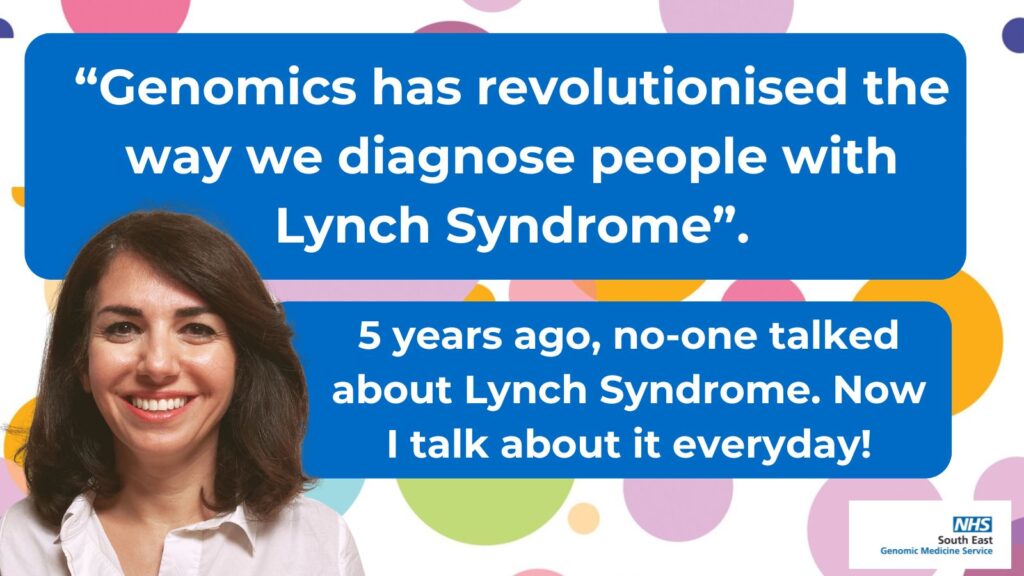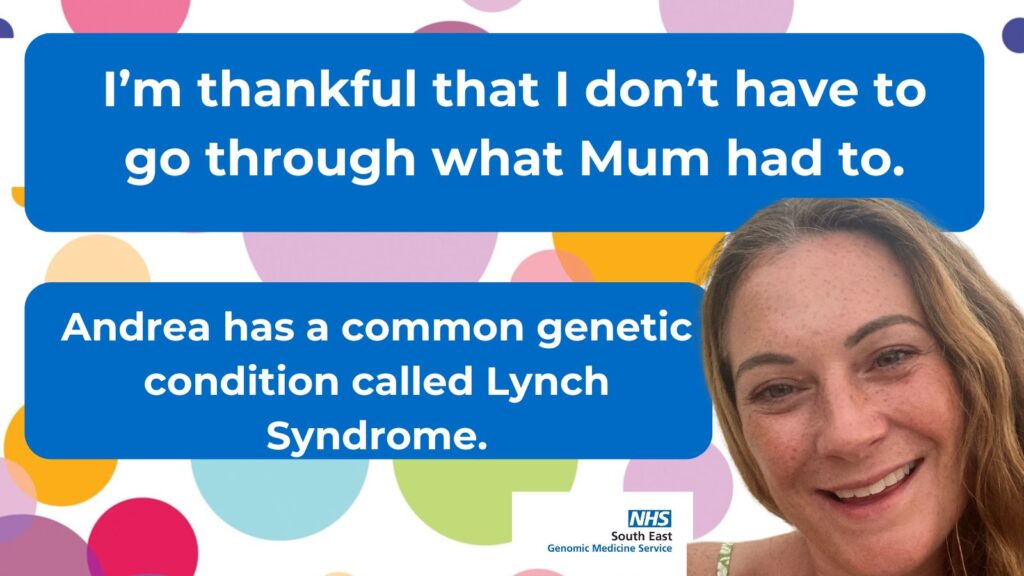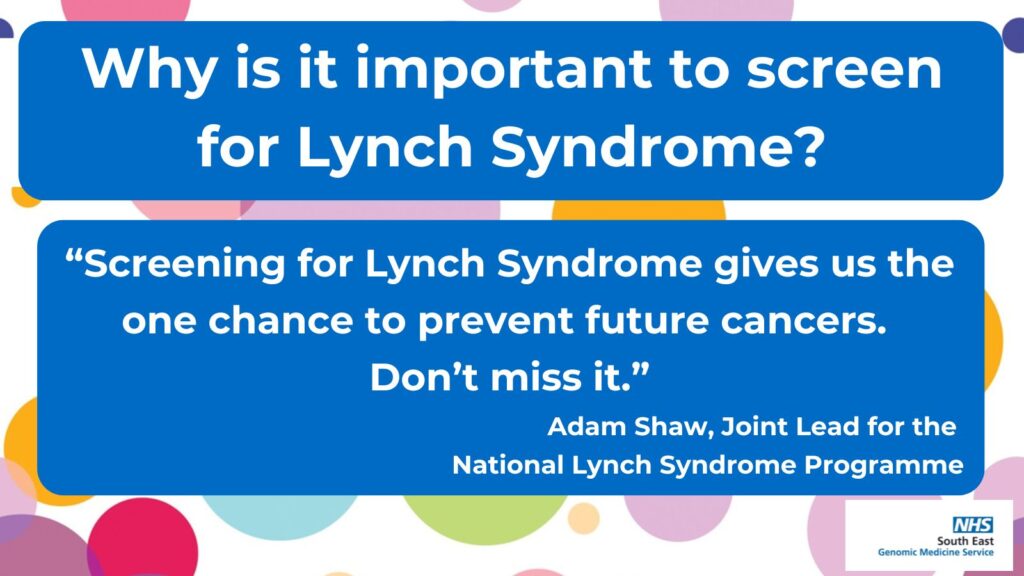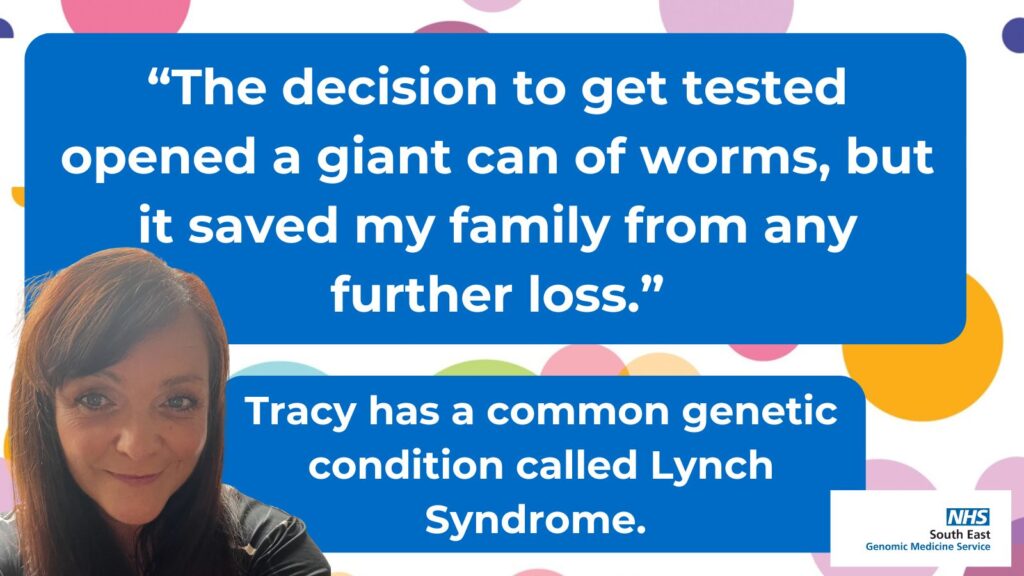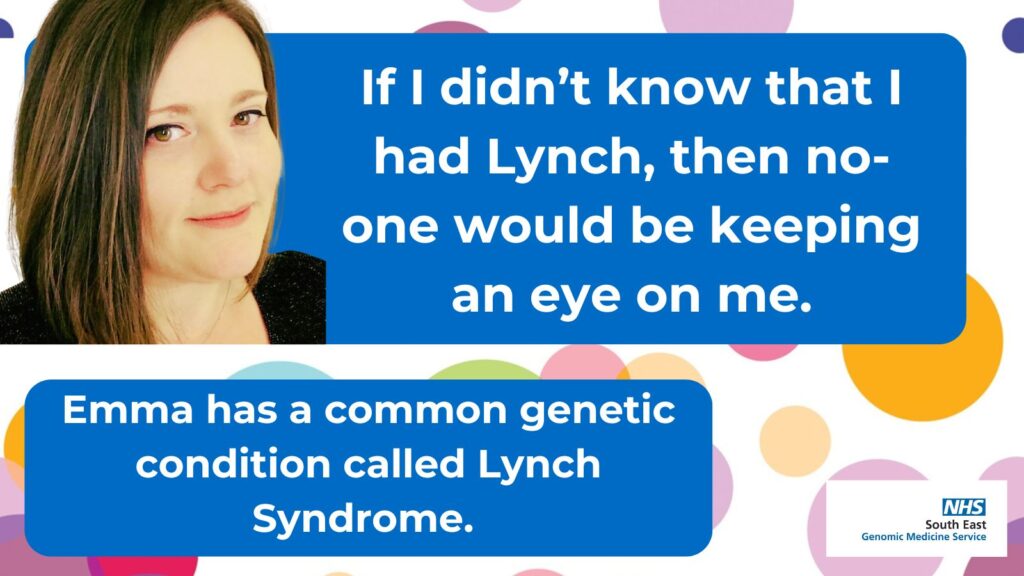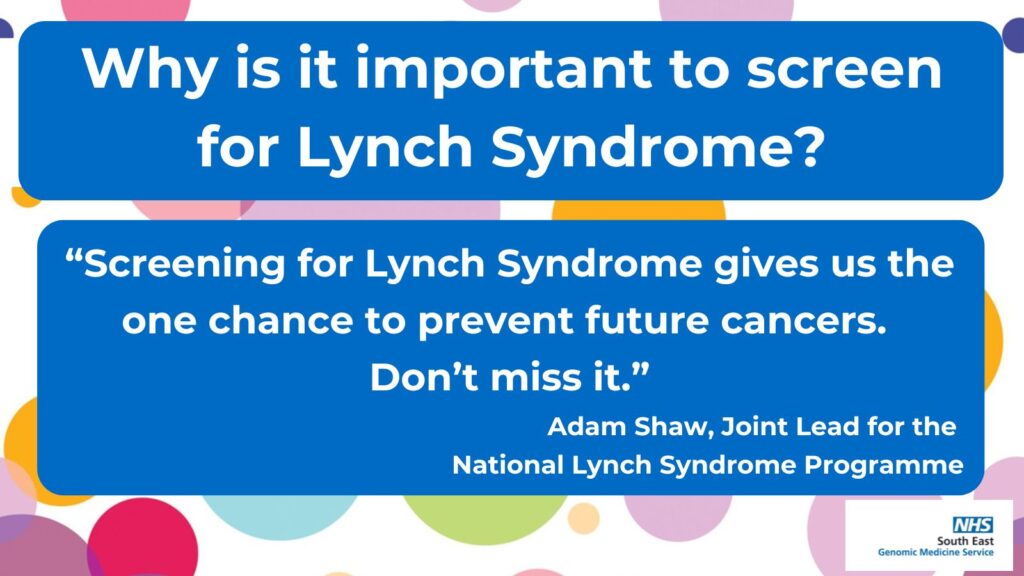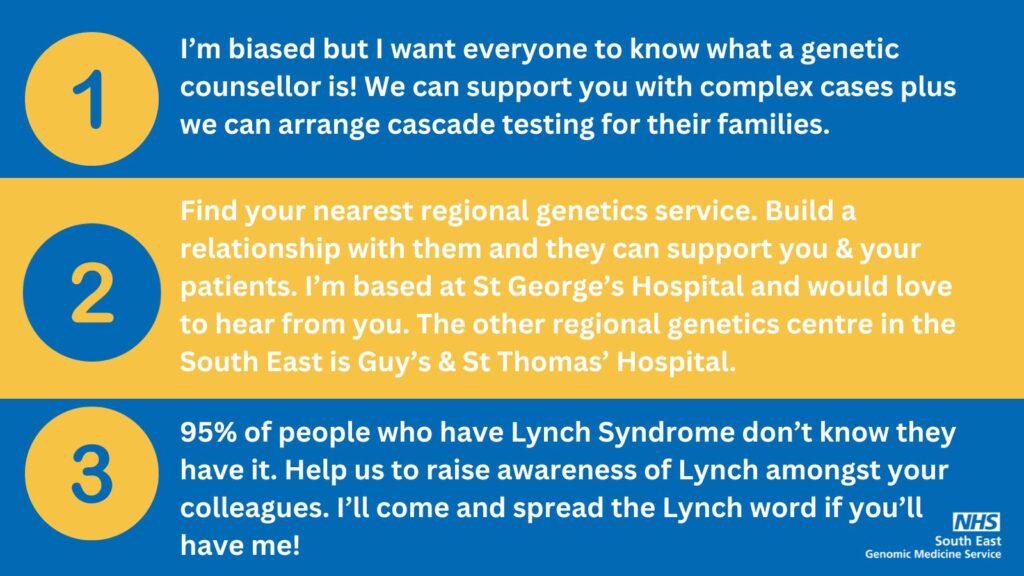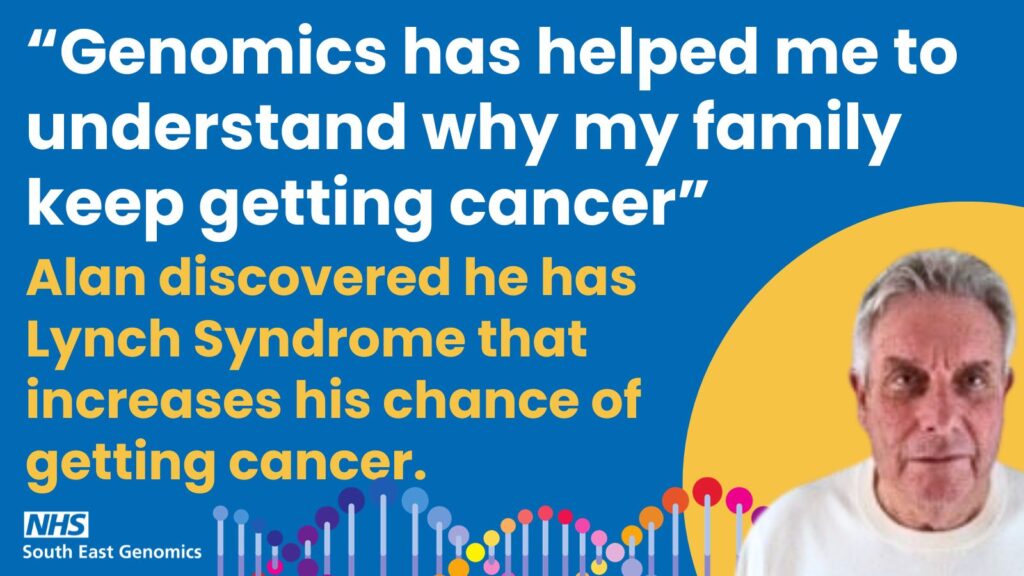Genomics has revolutionised the way we diagnose and treat people with Lynch Syndrome.
A few years ago, Lynch Syndrome was rarely mentioned amongst cancer teams. Today, NICE guidelines recommend that all patients diagnosed with colorectal and endometrial cancer undergo genomic screening for Lynch […]
Genomics has revolutionised the way we diagnose and treat people with Lynch Syndrome. Read More »

